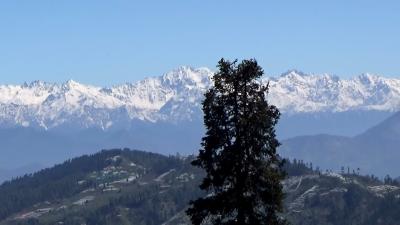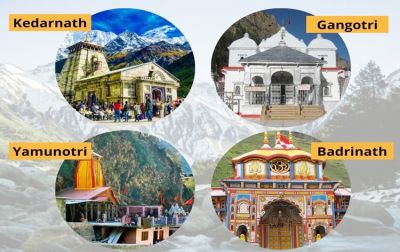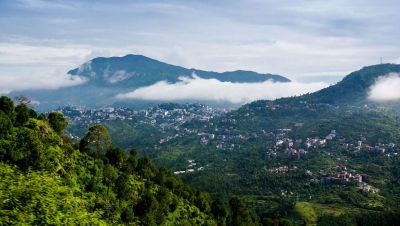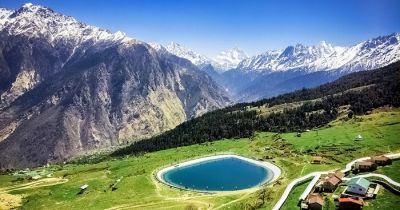Permaculture Initiatives: Uttarakhand's Sustainable Farming Revolution
Permaculture Initiatives: Uttarakhand's Sustainable Farming Revolution
Uttarakhand, the picturesque state in northern India, is not just famous for its stunning landscapes and spiritual places but is also emerging as a hub for sustainable farming practices. With the growing global concern about the impact of conventional farming on the environment and human health, permaculture is gaining popularity as a viable alternative in Uttarakhand. In this blog post, we will explore the permaculture initiatives in Uttarakhand and how they are contributing to a sustainable farming revolution.
What is Permaculture?
Permaculture is a design system that aims to create sustainable and self-sufficient ecosystems by mimicking the patterns and principles found in nature. It emphasizes the integration of plants, animals, and natural elements to create productive and resilient agricultural systems. Permaculture promotes biodiversity, water conservation, soil fertility, and energy efficiency.
Permaculture Initiatives in Uttarakhand
Uttarakhand is blessed with abundant natural resources and a rich agricultural heritage. Several permaculture initiatives have sprouted across the state, focusing on regenerative farming practices and promoting local food systems. Let's take a closer look at some of these initiatives:
- Navdanya Biodiversity Farm: Founded by renowned environmental activist Dr. Vandana Shiva, Navdanya is a pioneer in promoting organic farming and seed sovereignty. Located in the scenic region of Doon Valley, Navdanya's Biodiversity Farm practices permaculture techniques to conserve indigenous plant species, develop seed banks, and provide training to farmers in sustainable agriculture.
- EarthWise: Situated in the verdant hills of Kumaon, EarthWise is a permaculture learning center that offers courses on regenerative agriculture, natural building, and sustainable living. They showcase various permaculture techniques such as agroforestry, water harvesting, and composting. EarthWise also hosts internships and volunteer programs for individuals interested in hands-on experience in sustainable farming.
- Grassroots: Grassroots is a collective of farmers, activists, and researchers who are working towards promoting organic farming and sustainable livelihoods in the state. They organize training programs and workshops on permaculture, eco-friendly pest management, and market linkages for small-scale farmers. Grassroots also facilitates the exchange of traditional knowledge among farmers to enhance agricultural practices.
- Gaon Bachao: Located in the breathtaking hills of Almora district, Gaon Bachao is a permaculture farm that follows the principles of organic farming and regenerative agriculture. They grow a variety of crops, raise livestock, and implement sustainable practices like vermiculture, natural pest control, and rainwater harvesting. Gaon Bachao also conducts educational programs for students and visitors to create awareness about sustainable living.
The Benefits of Permaculture
Permaculture offers numerous benefits, both for the environment and the communities involved. Here are some key advantages of adopting permaculture practices:
- Environmental Sustainability: Permaculture helps conserve water and soil, promotes biodiversity, and reduces the use of chemicals and fossil fuels. By mimicking natural systems, permaculture creates resilient ecosystems that can adapt to changing environmental conditions.
- Food Security: Permaculture focuses on local food production, reducing dependence on external sources. It encourages the cultivation of diverse crops, increasing food availability, and enhancing nutrition for communities.
- Economic Opportunities: By adopting permaculture techniques, farmers can reduce input costs, minimize crop losses due to pests and diseases, and generate surplus produce for income generation. Additionally, permaculture initiatives create employment and entrepreneurship opportunities in rural areas.
- Community Empowerment: Permaculture fosters community engagement, knowledge-sharing, and cooperative work. It strengthens local traditions and cultures, promotes social cohesion, and empowers farmers with self-sufficiency and resilience.
Conclusion
The permaculture initiatives in Uttarakhand are a testament to the state's commitment to sustainable farming practices and environmental conservation. These initiatives not only promote ecological resilience but also empower local communities and enhance food security. By adopting permaculture techniques, Uttarakhand is at the forefront of a farming revolution that strives for a harmonious coexistence with nature. Let us all support and learn from these initiatives to build a greener and healthier future.
Don't forget to share this blog post with your friends and family to spread the word about Uttarakhand's sustainable farming revolution!
Disclaimer : The information provided in this blog is for general informational purposes only. While we strive to keep the content accurate and updated, TravelSetu assumes no liability for errors or omissions. If you believe any part of this blog infringes your rights or causes concern, please notify us immediately at info[at]travelsetu[dot]com so that appropriate action can be taken.

















